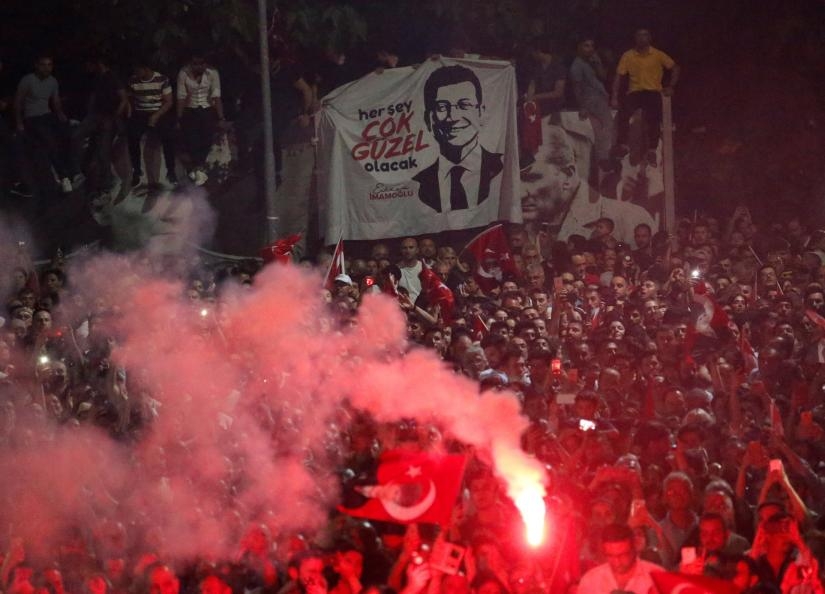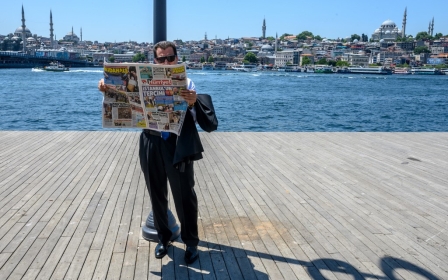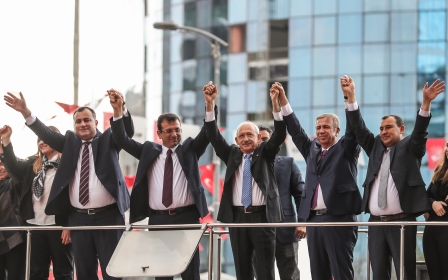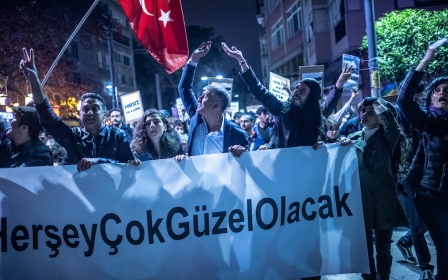Istanbul election: Seven things we learned from the rerun

Ekrem Imamoglu, a previously little-known local politician, has made national and international headlines following his landmark victory in Sunday's Istanbul election re-run.
Observers have said they believe the results are a significant setback for the Turkish government. Here are the other things we learned from the election:
1. A defeat for Erdogan
His name wasn’t on the ballot and the results cannot unseat him, yet Turkish President Recep Tayyip Erdogan has emerged as the biggest loser in this election. After all, it was his strategy to rerun the election, but that backfired spectacularly.
Following the 31 March election, he publicly called for the annulment of the polls and claimed that the opposition stole votes. Now Imamoglu is stronger than ever, having received the largest share of votes in any local election in Istanbul in the last 30 years.
Stay informed with MEE's newsletters
Sign up to get the latest alerts, insights and analysis, starting with Turkey Unpacked
And conversely, without actually doing anything, Imamoglu is now imagined as a likely presidential candidate in the next election. Erdogan effectively has created a rival.
However, it might still be too early to write Erdogan off, since the next presidential election is scheduled in 2023, and opposition seats in the parliament aren't enough to call for a snap election unless some in the AKP support it.
2. PKK leader Abdullah Ocalan is increasingly irrelevant
Just three days before the vote took place, Abdullah Ocalan, the jailed leader of the PKK militant group, called on Kurdish voters to be neutral in the Istanbul election in a letter sent from his prison cell on Imrali island.
But the People's Democratic Party (HDP), a legal party closely affiliated with Ocalan, ignored his call and declared support for Imamoglu. Preliminary results suggest Kurdish voters also followed the HDP, not Ocalan.
3. Conservative voters punished AKP
Analysts expected former prime minister and mayoral candidate Binali Yildirim to retain his votes. Instead, he lost 230,000 votes from the AKP and supporters of its nationalist ally. More than 50,000 Islamist Felicity Party voters also supported Imamoglu.
Why? There was a general sentiment among conservatives that an injustice had been done against Imamoglu in the first election where he emerged as the victor, albeit with a small margin. “We lost Istanbul because we lost the moral high ground. If we make genuine self-criticism, we can be a hope again,” Mustafa Yeneroglu, an Istanbul deputy from the AKP, tweeted on Sunday night.
4. Markets love the results
Turkish stock markets and lira rallied on Monday following the results. The US dollar lost roughly 1 percent of its value against the Turkish lira. One banker, who spoke to Reuters anonymously, said that the outcome had removed a source of political uncertainty and markets were hoping that the government would now shift its attention to economic reforms.
5. Government likely to reshuffle cabinet
Several pundits close to the Turkish government said on Monday that AKP grassroots members want a policy shift. Several sources, who spoke to Middle East Eye on condition of anonymity, said a cabinet reshuffle is expected, including for key positions from foreign policy to the economy. Erdogan is expected to set the tone on Tuesday for the party’s future agenda.
6. Intra-AKP opposition is emboldened
The AKP’s former heavyweights, such as former Turkish president Abdullah Gul, former PM Ahmet Davutoglu and former deputy PM and economy tsar Ali Babacan - who oppose the AKP’s current domestic and foreign policies - are emboldened by the election results. Gul, following the casting of his vote on Sunday, used language that was very close to Imamoglu’s campaign slogan.
“I hope everything will be beautiful," said Gul. Several reports last week claimed that Babacan will establish a new political party this summer; some said he would be resigning as early as July.
Even though Gul is rumoured to be supporting Babacan as the new leader, he keeps Davutoglu at arm’s length, creating the possibility that there would be two new political parties.
7. Turkish democracy is alive and kicking
The Turkish Election Board’s decision to cancel the original 31 March election was seen by many at home and abroad as a setback for Turkey's democracy.
Yet the opposition parties’ decision to participate in the election re-run, as well as a freer and fairer election campaign where candidates clashed in a televised debate for the first time in 17 years, rejuvenated people's faith in the country's political system.
The results emboldened observers to say it is almost impossible to rig votes in Turkey, where political parties equally have a say in every step of the election process.
Middle East Eye delivers independent and unrivalled coverage and analysis of the Middle East, North Africa and beyond. To learn more about republishing this content and the associated fees, please fill out this form. More about MEE can be found here.




